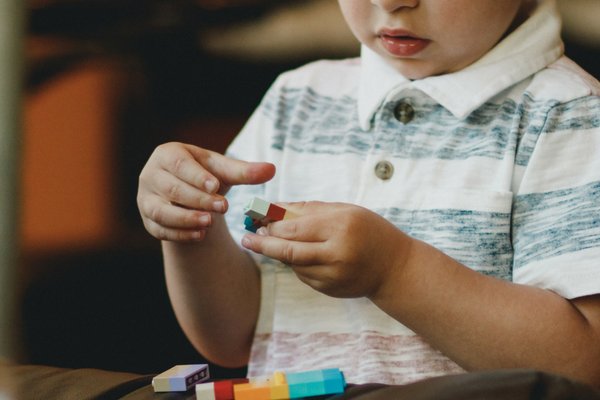
"Play is the only way the highest intelligence of humankind can unfold.”—Joseph Chilton Pearce
You walk into a preschool Sunday school classroom and the children are chattering away while building a cardboard-brick wall. They’re dressed customs to resemble the Israelites of old. “Well that looks fun,” you think, watching them giggle.
But what you may not know is—in these sometimes-chaotic moments of play—there is a ton of learning happening. As children build up toy blocks like the walls of Jericho, they are learning math and logic. Problem solving helps them learning communication and cooperation. Using their imaginations creates new neural pathways in their brains. They are learning and they do not even know it.
Sunday school for preschoolers presents faith-based educators with an amazing opportunity to develop great characters in children and to develop their brains. It is a high calling. One that, perhaps, you don’t always appreciate the fullness of.
Here’s a reminder of the important work you do, and how preschoolers learn through play.
3 ways play helps children develop

Increases cognitive and social skills
As children problem solve together they learn new skills and new ways to accomplish tasks. They also build their vocabularies as they work to accomplish a common goal. Social and literacy skills are in the works too. Play is children’s work after all. It is how they prepare for daily tasks, engage, and build social skills that connect them to others.
"Play is the highest form of research.”—Albert Einstein
Builds true character and teaches symbolism
When a child pretends, by using a play telephone, for instance, he or she learns how one thing can represent another. This is a solid foundation for learning to read, words representing items and concepts, and for needed life skills.
"Kids grasp words as symbols before learning to read...Between ages 3 and 5, kids who cannot yet read nonetheless start to recognize that printed words have specific meanings, a new study finds.”—Science News
It also can help them begin to understand spiritual concepts that are symbolic. Play helps children venture into the unknown and take responsibility while being engaged and present in the moment.
Brings stress reduction
Yes, children get stressed too. Stress can stunt proper brain development. An easy and natural way to reduce some of that stress for children is through play. Especially faith-based play as they are also learning their God is big.
Learning coping skills now can help children for a lifetime.
"Train children in the right way, and when old they will not stray.”—Proverbs 22:6
Teach through play
Incorporating many subjects into children’s play creates an engaging learning environment where children are more receptive and relaxed. Play is a child’s natural way of exploring and learning about the world around him or her. It is also a great way to increase parent faith engagement as children are excited to share the concepts they are learning with their families.
Building a child’s character and desire for lifelong learning is an art form all its own.
“It is the supreme art of the teacher to awaken joy in creative expression and knowledge.”—Albert Einstein
Play is organic learning that empowers.
Learn more about how a play-based Sunday school curriculum can help build faith among your little ones!



